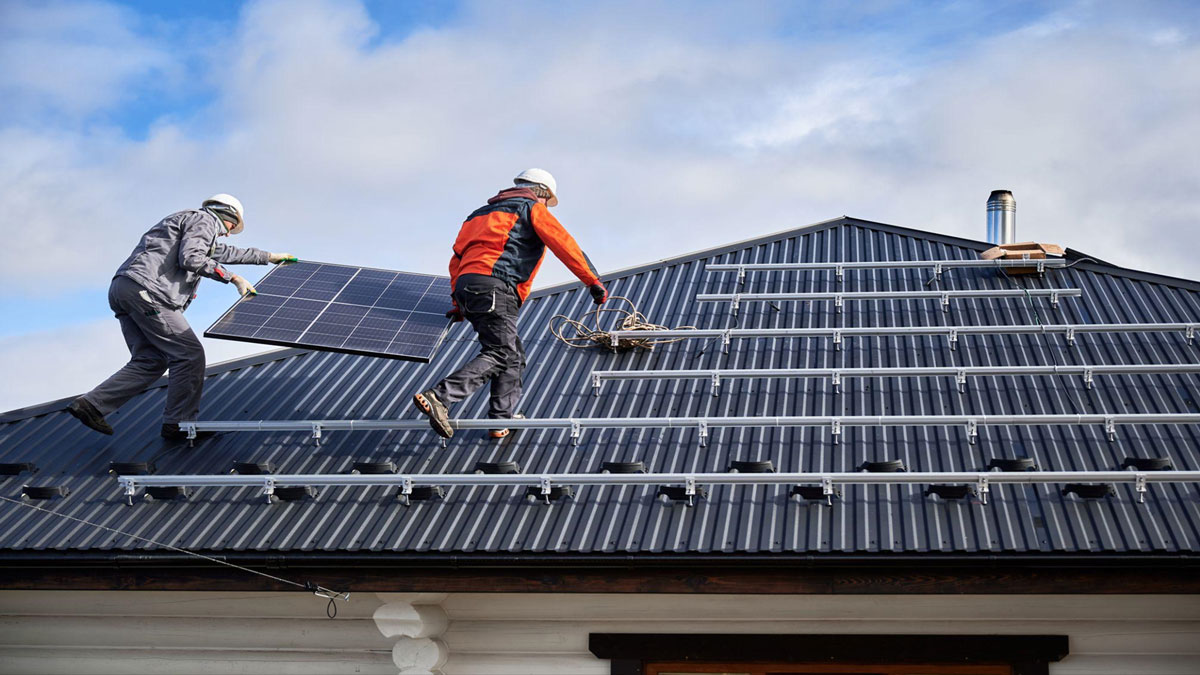Planet-Friendly Residences: Steps Toward Sustainable Homeownership?
In the current climate, many homeowners want to know what decisions they can make to be more environmentally conscious in their energy consumption. Between the threat of global warming and the increased energy costs, it’s never been more crucial to keep homeowners informed about their options surrounding sustainable energy.
In the United Kingdom, the government has created the Green Deal to provide advice and financial support to homeowners interested in adding energy-saving improvements to their homes. They also have a Boiler Upgrade Scheme supporting low-carbon heating technology throughout most of the country.
The United States government has similar incentives, including the Renewable Electricity Production Tax Credit. There are also grant programs designed to encourage renewable energy use nationwide. These types of incentive programs are essential to getting sustainable energy in more homes.
Why Does Sustainable Heating Matter?
One way to encourage homeowners to make more sustainable choices is to educate them on the importance of sustainability. There are various reasons that sustainable heating is a smart choice for homeowners.
Improved House Value
With the increasing popularity of sustainability and eco-friendly home design, having a house with sustainable heating sources is a significant draw. Homeowners can add value to their homes by investing in these sustainable energy sources.
Environmental Impact
Sustainability is at the core of being environmentally conscious. Traditional heating methods like gas boilers burn natural gasses to generate heat, producing high volumes of CO2 into the atmosphere and causing pollution. Sustainable options can significantly reduce an individual’s carbon footprint.
Efficiency
The evolution of energy-efficient heating methods gives homeowners more direct control over their energy usage. For example, smart meters for heating systems in UK homes help owners monitor their usage and control how much they spend on energy in their homes. Homeowners can also invest in sustainable heating, like combi-boilers or solar panels, to ensure their heating systems are more efficient, leading to less waste.
How Can Homeowners Be Greener?
There’s a plethora of ways to incorporate green features in a home to reduce the environmental impact and carbon footprint of the household. Here are a few energy-based ways that homeowners can boast a greener house.
1. Install Solar Panels
Installing solar panels is one way that homeowners can increase their energy efficiency. Solar panels are an excellent sustainable energy source, eliminating energy bills altogether in some instances. Solar panels are a low-maintenance way to live more sustainably, making them an easy sell to most homeowners.
One significant benefit to investing in solar panels is the value they can add to a home. There are no consistent figures about how much value solar panels can add, but they don’t detract from the value of a property. Some countries also have incentives that provide support to encourage homeowners to get solar panels or will buy surplus energy for the grid.
Pros: Efficient, saves money, offers the chance to make money, better air quality than other methods, easy to maintain, long lifespan.
Cons: Expensive installation, weather dependent, doesn’t work for every home.
2. Use Heat Pumps
Heat pumps are an increasingly popular alternative to gas and oil boilers. Various government schemes support homeowners replacing their existing boilers with heat pumps. Heat pumps are more efficient than traditional boilers, and they also produce cleaner electricity.
One significant appeal to heat pumps is that they are immune to fluctuating gas and oil prices. Today, this couldn’t be more valuable to homeowners navigating economic crises. Instead, heat pumps gather air at cooler temperatures, heat it, and transfer it throughout the home.
Pros: Long lifespan, reliable heat source, provides effective heating and cooling, reduces energy bills.
Cons: Expensive installation, complex research process to install, requires electricity to run, requires planning permission in some countries.
3. Switch to Electric Boilers
One competitor of heat pumps is electric boilers or combi-boilers. Electric boilers don’t depend on gas or oil for fuel, so they’re more efficient and reliable – something that’s particularly sought-after in the current climate. Using an electric boiler reduces a household’s carbon footprint compared to traditional boilers.
Electric boilers are highly efficient and don’t lose energy when they produce heat. There’s also no risk of carbon monoxide leaks with electric boilers since they don’t produce waste gasses. This is a significant selling point for more safety-conscious homeowners. Using an electric boiler is also more compact than using gas boilers, and they have more flexible installation options.
Pros: No annual service needed, cheaper to install than gas boilers, quieter than gas boilers.
Cons: Increases electricity bill, not ideal for large homes, affected by power cuts.
What is the Most Eco-Friendly Way to Heat a House?
Heat pumps are the most eco-friendly option, operating efficiently regardless of the weather or the available daylight. There are almost no CO2 emissions from heat pumps and they are incredibly thermally efficient. The trade-off for this environmentally friendly option is that it’s expensive right now.
Homes require extensive planning permission and research to ascertain how you can and should install the heat pump. It’s also a lengthy process to install heat pumps, with a significant amount of building work being standard to get it running correctly.
The good news is many new builds are prioritizing using heat pumps from the get-go. Although this means the homes are more expensive to buy, it also means their energy bills are lower and they resell better too.
Conclusion
Sustainable heating options are improving for many homeowners around the world. There are many things that governments can do to encourage homeowners to opt for more environmentally friendly ways to power their lives. Financial incentives play a significant role in enticing homeowners to choose sustainable options, which are often more expensive and complex to install than traditional methods that burn natural resources.
One of the most effective ways to increase the number of people prioritizing sustainability over saving money is education. Discussing how renewable and efficient energy sources can benefit the individual informs homeowners and impacts their decision-making surrounding choosing an energy source for their home.



